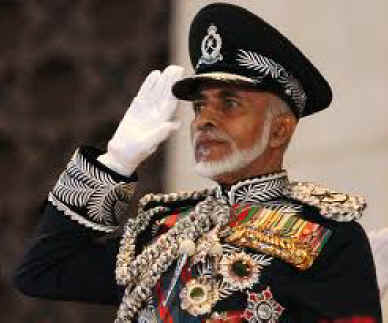
The repressive Sultanate of Oman is to be honoured next month by an official visit from Prince Charles, the heir to the British throne. But one Omani newspaper will definitely not be reporting on the prince's trip: last week a court ordered the permanent closure of Azamn newspaper and sentenced three of its journalists to prison terms ranging from one to three years.
On July 26, Azamn published a front-page article about the outcome of a civil lawsuit, hinting at judicial corruption. At the centre of the story was a quarrel over who should inherit the fortune of a wealthy but unnamed foreign "investor". The investor had acquired Omani citizenship and, according to Azamn, developed "business interests tied to relations with officials" of the Sultan's diwan.
Following the investor's death in 2009 a lengthy inheritance dispute broke out and eventually – last May – the Omani Appeal Court ruled in favour of one of the heirs whose interests, Azamn noted, were "not connected with senior officials".
However, Ishaq bin Ahmed al-Busaidi, the president of the Supreme Court then intervened to overturn the Appeal Court's decision. Azamn suggested that in taking this action Busaidi had been improperly influenced by unnamed senior officials.
Azamn's article has now disappeared from the internet along with the rest of its website but an archived copy of the story (in Arabic) can be found here.
On July 27, Azamn published a second article (archived here) reporting on public reactions to the initial story.
Next day, instead of launching an investigation into the alleged corruption, police swooped on Azamn and arrested Ibrahim al-Maamari, its editor-in-chief.

On August 2, Zaher al-Abri, one of the paper's editors, spoke to the US-based Committee to Protect Journalists about his boss's arrest. On the following day he too was arrested.
In the meantime, Azamn had been issued with an order from the Information Ministry forbidding further coverage of the inheritance case. In protest at this, the paper published a block of white space on its front page during the first few days of August.

On August 7 and 9, however, Azamn published interviews with Ali Salem al-Nuamani, Busaidi's deputy in the Supreme Court. On the day that the second interview appeared yet another Azamn journalist, Yousif al-Haj, was arrested.
In the interviews, Nuamani had supported the paper's reporting on allegations of corruption in the judiciary, accusing Busaidi and two other named officials of violating Omani law.
Last year, incidentally, Busaidi headed an Omani judicial delegation visiting Britain. The visit, which took place "within the framework of supporting the judicial cooperation between the two countries", included "discussing means of exchanging expertise, developing capacities and expanding cooperation in the field of judicial training".
In an Omani court last week, Maamari and Haj were sentenced to three years in prison and fined 3,000 rials ($7,800) on charges of “disturbing public order”, “misusing the internet”, “publishing details of a civil case” and “undermining the prestige of the state”. They were also banned from journalism for a year.
Abri was sentenced to one year in prison and fined 1,000 rials for using “an information network [i.e. the Internet] for the dissemination of material that might be prejudicial to public order.”
The court also ruled that Maamari and Haj could be released on bail of 50,000 rials ($130,000) if they decided to appeal.
Busaidi has made no public comment on the affair. The Committee to Protect Journalists says it attempted to contact the Omani judiciary for comment via email but received a message saying its mailbox was full. Other requests for comment by phone and email to the Foreign Ministry, the Public Prosecutor, the Omani embassy in Washington and the Information Ministry went unanswered, the CPJ said.

Britain and Oman are long-standing friends. Sultan Qaboos seized the throne from his father (with British help) way back in 1970 and since then he has maintained close ties with the UK – and its royal family. In May he sent his exotically-dressed royal cavalry to perform at the Queen's 90th birthday celebrations in Windsor.
In 2012, Oman delighted the recession-hit British government with a $4 billion order for warplanes. More recently there have been hints that Oman, along with the other GCC states, will offer Britain a free-trade deal to help secure a glorious post-Brexit future.

 RSS Feed
RSS Feed
